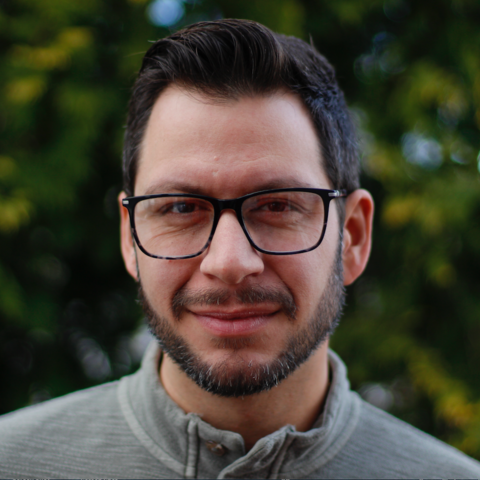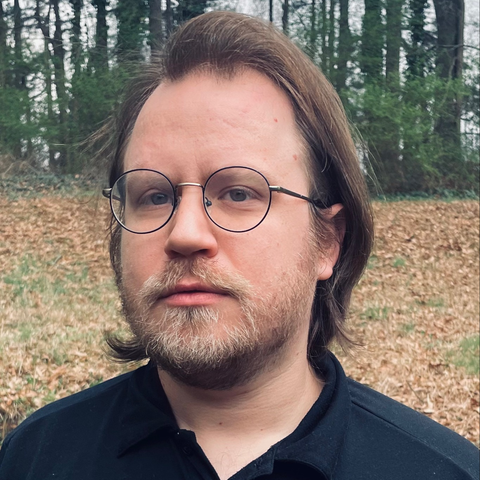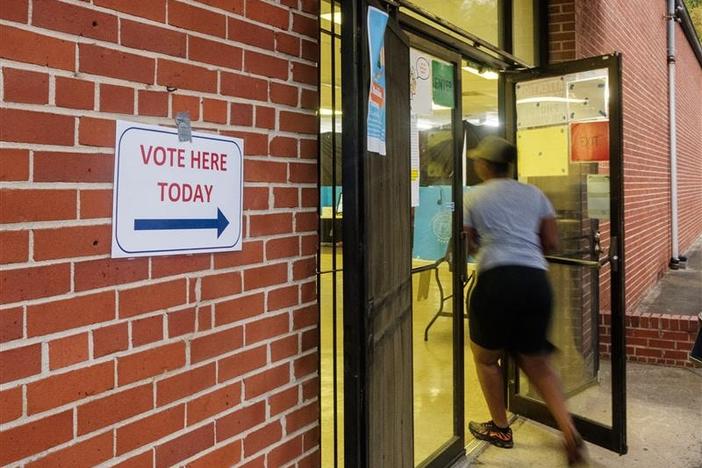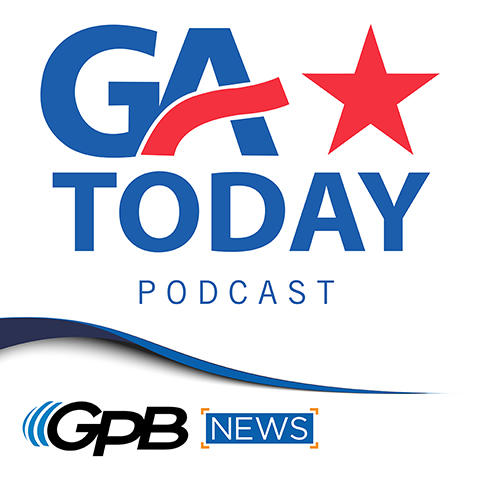
Section Branding
Header Content
Georgia Today: Lawmakers look at rising rents; Hunting ground updates; Stories you may have missed
Primary Content
On the Friday, Dec. 22 edition of Georgia Today: Lawmakers plan to take a look at rising rents; upgrades to a popular state-managed hunting ground will wrap up in the new year; and we'll take a look back at some of the stories you might have missed during 2023 on this edition of Georgia Today.

Peter Biello: Welcome to the Georgia Today podcast from GPB News. Today is Friday, Dec. 22. I'm Peter Biello. On today's episode, lawmakers plan to take a look at rising rents. Upgrades to a popular state-managed hunting ground will wrap up in the New year. And we'll take a look back at some of the stories you might have missed during 2023 on this edition of Georgia Today.
Story 1:
Peter Biello: A bill aimed at addressing rising rent has been filed ahead of the next legislative session. GPB's Amanda Andrews explains the measure would give local governments more options to address affordable housing.
Amanda Andrews: Georgia House Rep. Eric Bell filed a bill to repeal the ban on governments enforcing rent control measures. The legislation would apply to all privately owned single family and multiple unit rental properties. Data from the U.S. Department of Housing Development shows rent for a one-bedroom in the Atlanta metro area has risen by over $200 on average since last year to around $1,500 a month. Bell says it's time local authorities get a say over the growing housing crisis.
Eric Bell: The homeless population is growing in every demographic from white, Black, Asian, young, old, new, in between. It seems like now more than ever, because we just have to trust our elected officials to understand economic development.
Amanda Andrews: The legislative session begins again Jan. 8, 2024. For GPB News, I'm Amanda Andrews.
Story 2:
Peter Biello: A yearslong series of upgrades to a popular state-managed hunting ground in Southeast Georgia is expected to wrap up later in the new year. GPB's Benjamin Payne reports.
Benjamin Payne: The 32,000 Altamaha Wildlife Management Area north of Brunswick was hit hard by Hurricanes Irma and Michael in 2017 and 2018. Since then, crews from the Georgia Department of Natural Resources have repaired impoundments at Altamaha's Champney Island and Rhett's Island. Now the agency says the last one on the list, Butler Island, will be fully repaired in the summer of 2024, if not sooner. David Mixon is a game management supervisor at the DNR.
David Mixon: I'm excited to be done with the final phase of that big project. These are pretty big upgrades that will help us better withstand floodings and storm surges and that sort of stuff that has caused us some major issues and we're excited about the potential for that enhanced attraction for waterfowl.
Benjamin Payne: Butler Island was closed to waterfowl hunting this year, but Mixon says will be back next year in time for the start of the hunting season in November. For GPB News, I'm Benjamin Payne.

Story 3:
Peter Biello: As we wrap up 2023, we're bringing you some of our most noteworthy stories from the past year. And the first of those, we bring you the story of Georgia State volunteers who for the past two years have been gathering and preserving the life stories of transgender people who live in or have impacted the state. The Georgia Transgender Oral History Project is a series of interviews stored in the university archives. GPB's Amanda Andrews spoke to volunteers about the interview process and the importance of preserving trans history.
Amanda Andrews: It's mid-afternoon in the Georgia State University Library, eight stories above downtown Atlanta. Archivists Morna Gerard and Tracee McDaniel are digging through McDaniel's life.
Tracee McDaniel: I save everything, so it was just all packed away.
Amanda Andrews: In front of them are several boxes full of newspaper clippings and awards for McDaniel's life as a trans woman, including decades of activism.
Tracee McDaniel: It's interesting going back and looking through all of this stuff and remembering stuff and I'm like "Did I do that? Did I do that?"
Amanda Andrews: Even she hasn't seen this stuff in a long time.
Morna Gerard: Oh my gosh, is this you?
Amanda Andrews: Adorable.
Tracee McDaniel: That's my alter ego. "Destiny, Your Mistress of Illusion."
Morna Gerard: You look like Diana Ross.
Tracee McDaniel: Yep, that's my Diana Ross. Yeah, I was an entertainer for over 20 years.
Amanda Andrews: Gerard will file all of McDaniel's things as an official part of the library's Gender and Sexuality Archive, which is also home to the Transgender Oral History Project. McDaniel says she is more than happy to share.
Tracee McDaniel: So this project is an act of rebellion, an act of resistance against the system, politicians, religion, etc., etc. So I love being in this rebellious state. That's why I'm enjoying this process.
Amanda Andrews: But McDaniel isn't just doing this work for her own pleasure. This is about the future and about saving lives.
Tracee McDaniel: And so if the younger generation can be inspired by my story, by my — by my path, then that's all worth it. That's why I do what I do. And that's why I think it's important for us to — to leave our history and let others know that, no, you're not the first.
Amanda Andrews: Oral histories range in age and life experience, from young college students to retired drag queens. Archivist Morna Gerard helped start the project in 2021. She says from the beginning she and the volunteers were clear: They wanted to highlight joy in the trans community.
Morna Gerard: We want to look at resiliency and community and, you know, people do sometimes want to talk about trauma and we're very happy to talk to them about that. But that's not necessarily the sole focus of our project.
Ashby Combahee: You thought about this a lot.
Tracee McDaniel: Good question.
Ashby Combahee: So much of what I see as an interview process is trying to pick certain...
Morna Gerard: Ashby Combahee says he needed an image of a joyful trans life growing up in Louisiana.
Ashby Combahee: Growing up as a queer child. I did not believe that I belonged in the South and the first thing I did when I grew up as an adult was leave the South. And doing that made me realize how Southern I am, how I relate to people. The slow pace of Southern living and the culture. I missed it deeply.
Morna Gerard: Like Tracee McDaniel, Combahee has both shared his own story with the project and collected others.
Ashby Combahee: I think so much of queer history is censored as adult material. However, we know that for any type of cultural-building, any type of identity formation, you know, knowing your history from a young age helps give you a sense of belonging.
Morna Gerard: And Combahee says he hopes these collected histories show young trans people they belong in the South, too. The latest audio interviews for the Georgia Transgender Oral History Project will be accessible online within a year. For GPB News, I'm Amanda Andrews.

Story 4:
Peter Biello: Researchers are diagnosing autism in young children based on eye movement. GPB's Ellen Eldridge has the story.
Ellen Eldridge: Researchers with the Marcus Autism Center in Atlanta are measuring eye movement in young children to help diagnose autism as early as possible. The study tested approximately 500 children between 16 and 30 months of age. An automated device monitored their eye movements to determine what the children looked at and what they did not. Warren Jones is the director of research at the Marcus Autism Center. He spoke about the study in audio provided by Children's Health Care of Atlanta.
Warren Jones: So by measuring the way the child looks at the world, we actually see how that child sees, understands and learns about the world. We can provide that information to clinicians in order to guide earlier, more effective diagnosis.
Ellen Eldridge: Jones says the goal is shortening the time between diagnosis and receiving help. For GPB News, I'm Ellen Eldridge.

Story 5:
Peter Biello: Earlier this year, the Savannah Bananas revealed their schedule for next season, and for the first time, their schedule will include games at MLB ballparks. GPB's Benjamin Payne has the report.
Benjamin Payne: The Savannah Bananas expect to play in front of more than a million fans next year as they showcase their signature brand of baseball across the country. The Bananas unpeeled their 2024 schedule on Thursday night, revealing the locations of 84 games to be played from February to October. Perhaps the most notable ballpark on tap? For that, here's Savannah Bananas owner Jesse Cole at the team's schedule reveal show.
Jesse Cole: With the next pick in the 2024 Banana Ball World Tour draft: The Savannah Bananas are going to Fenway Park, home of the Boston Red Sox!
Benjamin Payne: Fenway isn't the only major league ballpark on the tour. Bananas will also be playing at the home fields of the Philadelphia Phillies, Houston Astros, Cleveland Guardians, Washington Nationals, Miami Marlins. Of course, there will be plenty of home games as well at Grayson Stadium, where the team announced an additional 1,000 seats will be built. Elsewhere in Georgia, the Bananas will play three games in Gwinnett County, home of the Atlanta Braves' AAA affiliate. For GPB News, and Benjamin Payne in Savannah.
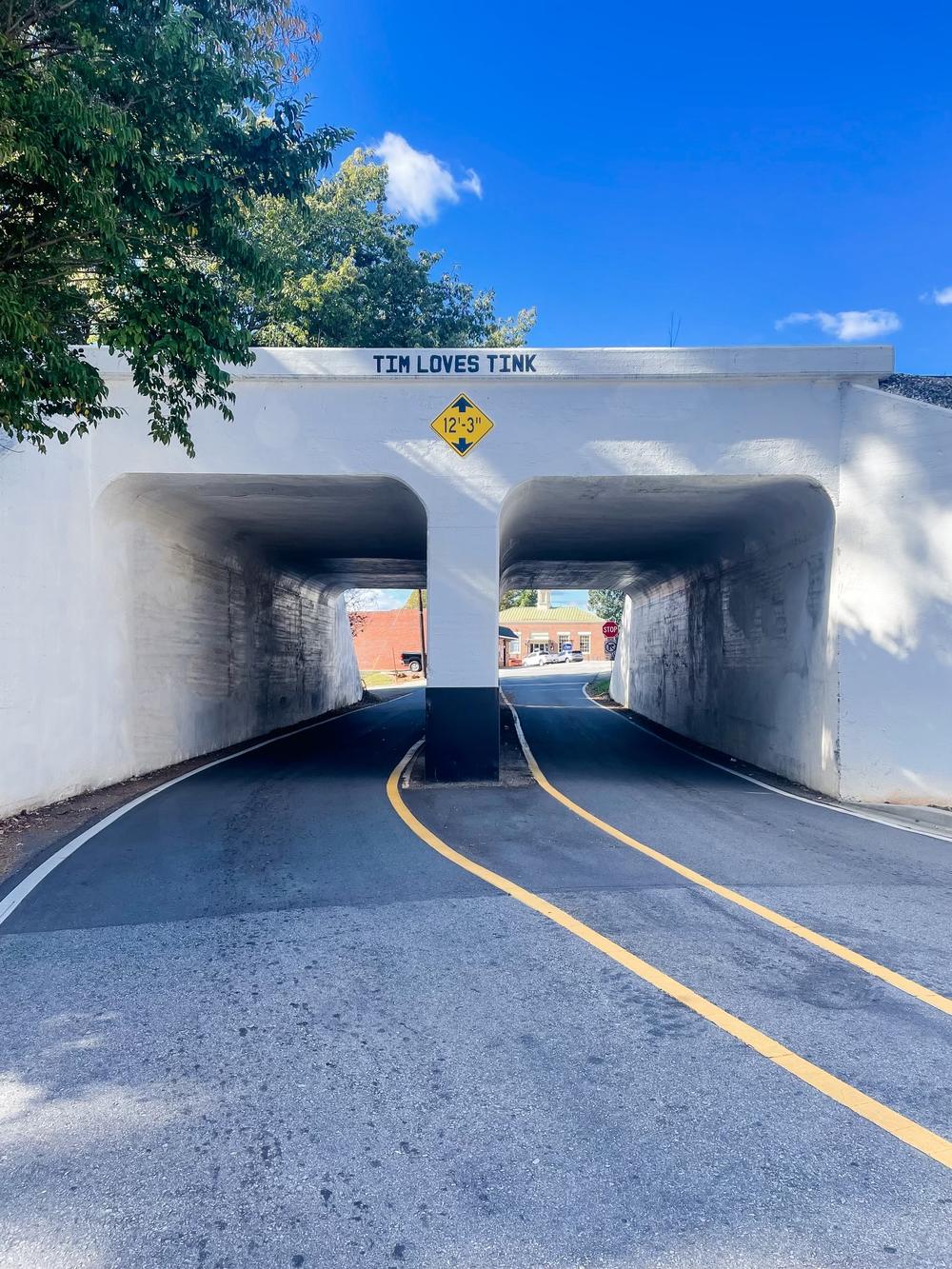
Story 6:
Peter Biello: No one in the small northeast Georgia town quite remembers when it started. But sometime in the '60s, '70s or '80s — again, folks are very fuzzy about this — someone named Tim professed his love for someone named Tink by painting graffiti on a railroad underpass that leads out of downtown. The not-so-creative graffiti read "Tim loves Tink." Audrey Davenport of the Habersham County Historical Society and the Regional African-American Museum of Northeast Georgia, talked with GPB's Orlando Montoya about the endearing message on an underpass in Cornelia, Ga.
Audrey Davenport: Okay, so we've been collecting stories. We don't have as many — as as we would like to have. And the way that I am positioned to gather stories is that you could tell us something that was real factual or even you can use your imagination to give us a story that you think about, you know, that might have existed because I don't really know if they are still around town or if they have any indication that the city has created this love affair with that message. I really don't know. So I would love to find Tim and Tink, but so far no one has has reached out to me or to the city.
Orlando Montoya: So why do you think Cornelia has embraced this graffiti? This "Tim loves Tink."
Audrey Davenport: For me, the underpass is iconic because it's this tiny little town and we don't have a lot of really quaint things in downtown Cornelia. I think that is the most quaint, iconic thing that downtown Cornelia has, and it has become a symbol of, I think, that the community is in love with the idea of "Tim loves Tink," you know, and that it has stood the test of time. Like I guess we all hope the love, that love stands the test of time. So I think that is the intrigue with most people about that particular graffiti. That's what I think.
Orlando Montoya: Is it really graffiti at this point?
Audrey Davenport: You know what? I really don't see it as graffiti, you know, because when I think of graffiti, I think of taggers or people who do a particular type of font. But I guess at the beginning, this thing must have looked like — I mean, if you could imagine someone went up to the top of the underpass, you know, where there's enough space for a person to lay down next to the railroad track and paint that thing upside down. Right? So I think that just the fact that someone even got up to the top of that underpass and had that much, I don't know, nerve to paint such a message is part of the intrigue. So I also wanted to explore all of those possibilities and hopefully get there to somehow be reflective and some of the type of activities or maybe even eventually in the final art design. This will be their first mural, proud to say. And then as we go along, we'll start to see more murals in downtown Cornelia.
Story 7:
Peter Biello: Ahead of the Christmas Day release of the musical remake of The Color Purple, actor Louis Gossett Jr. stopped in Atlanta to talk about starring in the film and shooting in Georgia. GPB’s Amanda Andrews has more.
Amanda Andrews: The Color Purple originally reached the big screen in 1985 and became a Broadway production in 2005. Now the musical has been adapted into a movie as well. The movie was filmed at several locations around Georgia, including Atlanta, Savannah and Macon. Actor Louis Gossett Jr. says filming in the state reminds him of other shows he’s worked on.
Louis Gossett Jr: Filming in Georgia is like going back to — back home because we did Roots in Savannah. And so that's the original story. Very accurate and very bold by — on the part of ABC. And they were worried about that, but they did the right thing.”
Amanda Andrews: The Color Purple is based on the Pulitzer Prize-winning book written by Eatonton native, Alice Walker. For GPB News, I’m Amanda Andrews.
Story 8:
Peter Biello: Macon, Ga., made sports history this month by opening the doors to the world’s largest indoor pickleball facility. It’s part of a plan to establish the city as a destination for the growing sport. GPB’s Josephine Bennett reports.
Josephine Bennett: The parking lot of the Macon Mall has not been this full for years. People have come from all over for Southern Pickleball’s Candy Cane Classic.
John Roberts: We have people from as far away as Wisconsin. You know, 650 players are here.
Josephine Bennett: John Roberts is the manager of Rhythm and Rally, a new pickleball facility.
John Roberts:And it stretches the gamut of certainly the Southeast. We probably have 30 to 40 of that number that are, your quintessential snowbirds on their way south.
Josephine Bennett: Inside the mall, competitors battle it out on 32 courts covering two floors of an old Belk department store. This was once the biggest mall in Georgia says Alex Morrison, who works with the city in Urban development.
Alex Morrison: For an entire generation of Americans. The mall was their town center.
Josephine Bennett: But like malls across the country this one has seen its share of store closings over the past two decades.
Alex Morrison: But this infrastructure is still here.
Josephine Bennett: So a mega pickleball center made sense as a way to revive life at the mall. It also plays into Macon’s passion for pickleball that’s been growing thanks to the conversion of a large outdoor tennis facility in 2017. It’s a Monday night and all 26 pickleball courts in Tattnall Park are teeming with players including Jill Vanderhoek, who’s only been playing two years but already taking home gold medals. She says the city’s investment in pickleball infrastructure made that possible.
Jill Vanderhoek: Between the access of being able just to pick up the sport, being able to come out and learn and get better. And then the courts, like, we have real courts, and you don't necessarily see that sort of investment.
Josephine Bennett: There are now 71 public courts in the city and low fees make pickleball accessible here. The sport also has cheerleaders like Paul Midkiff, the president of the Macon Pickleball Association. The former Catholic high school teacher spreads the gospel of pickleball at Tattnall where he teaches Pickleball 101.
Paul Midkiff: I was the tennis player that didn't want to play pickleball, thought it was kind of beneath me, but got on the court, played for about 2.5 hours, went home, took a shower, went to Dick's Sporting Goods, bought two paddles and some balls because I wanted to play the next day and I wanted to teach it to my friends.
Josephine Bennett: According to USA Pickleball, it’s the fastest-growing sport in the nation. There are thousands of courts and even pickleball franchises dotting every state, and its popularity shows no signs of slowing. For John Roberts who runs the mall pickle ball courts, Macon’s all-in approach to the sport could put the city on the map, just like The Masters tournament did to another Georgia town.
John Roberts: It's been our ambition to make pickleball to Macon what golf is to Augusta and have this be the premier pickleball location, at least in the Southeast of the United States, if not the country.
Josephine Bennett: This go big or go home approach is reflected in the number of courts here. And at the rate people are playing pickleball in this city, it could just get there. For GPB News, I’m Josephine Bennett in Macon.
Peter Biello: And that is it for this edition of Georgia Today. If you want to learn more about any of these stories, visit GPB.org/news. And if you haven't subscribed to this podcast, take a moment and do it now. We'll be back with you on Monday with all the latest news. If you've got feedback, we'd love to hear from you. Email us. The address is GeorgiaToday@GPB.org. I'm Peter Biello. Thanks again for listening. We'll see you on Monday.
---
For more on these stories and more, go to GPB.org/news
